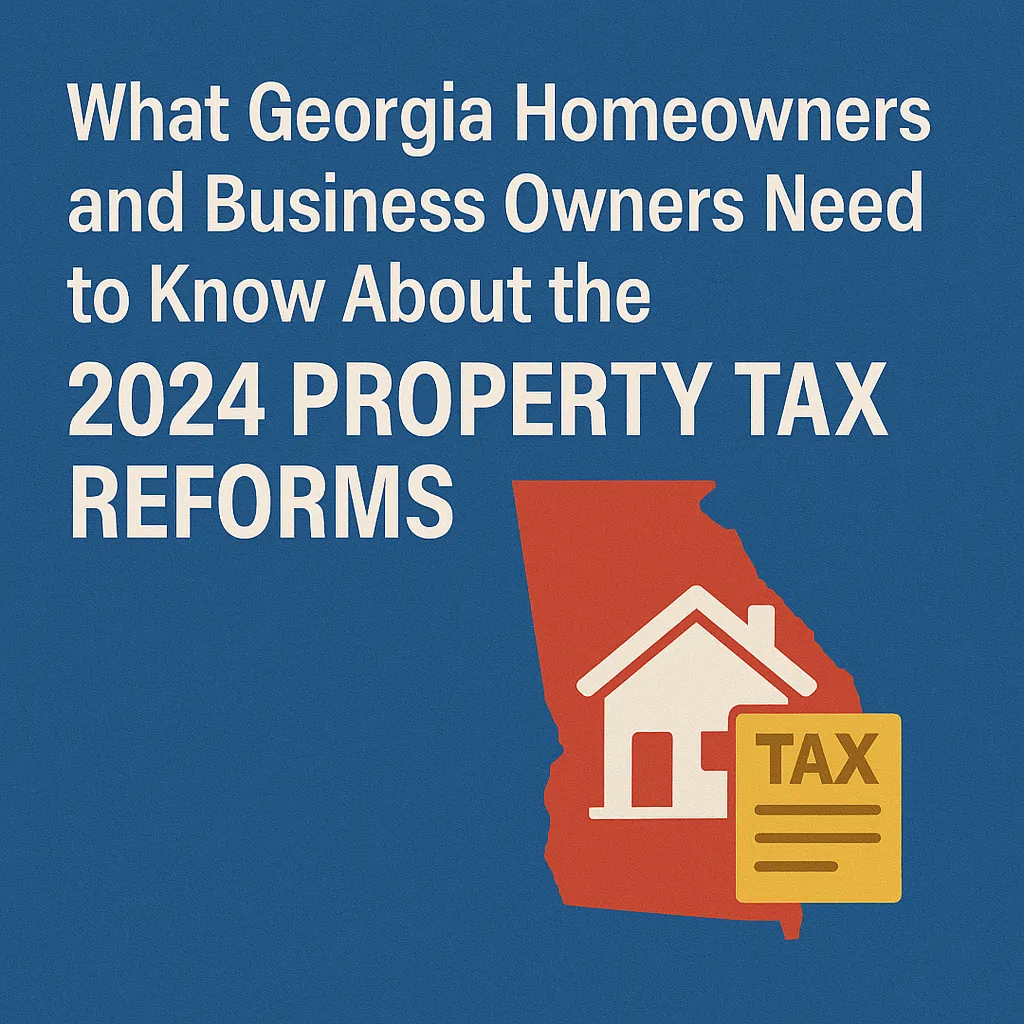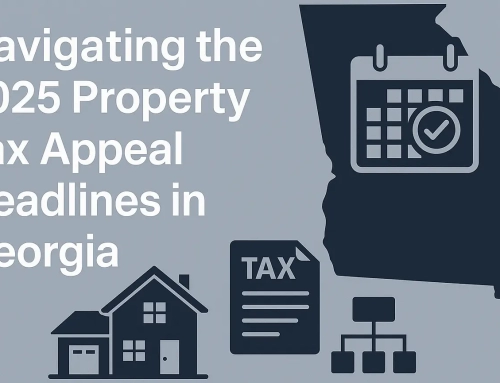Two newly approved tax measures could reshape local tax bills starting January 2025—if your county opts in.
Georgia voters approved two key initiatives in the November 2024 election that could impact how much property tax homeowners and small business owners pay in 2025. These measures—Amendment 1 and Referendum A—introduce new homestead exemption rules and raise the exemption threshold for personal property. Let’s break down what each change means and how it might affect you.
📌 Amendment 1: Inflation-Adjusted Cap on Property Tax Increases
The Basics
Amendment 1 stems from House Resolution 1022 (originally House Bill 581) and amends the Georgia Constitution to create a statewide “floating” homestead exemption. The key feature? It limits annual increases in the taxable value of owner-occupied homes based on inflation.
Key Highlights:
- Caps assessed value growth to match the inflation rate.
- Applies uniformly across counties, cities, and school systems—unless local governments opt out.
- Takes effect January 1, 2025.
Vote Outcome:
Approved by nearly 63% of voters (over 3 million votes in favor), reflecting strong statewide support.
Why It Matters:
If your local government adopts this provision, your property taxes may no longer skyrocket just because home values rise rapidly. Instead, increases in your home’s taxable value would be limited to how much inflation increases—offering more predictability and stability.
But There’s a Catch:
Local governments—counties, cities, and school districts—can opt out, but it’s not simple. They must:
- Publicly advertise the change.
- Hold three weekday public hearings.
- Finalize their decision by March 1, 2025.
Whether or not your area opts in will depend largely on local finances. Many counties already freeze homestead values under existing exemptions, but others—especially those struggling to fund schools or infrastructure—might resist the change due to potential revenue loss.
Alternative Revenue Option:
To balance their budgets, counties that adopt the floating exemption may consider increasing their local sales tax by 1%, known as a Floating Local Option Sales Tax (FLOST).
🧾 Referendum A: Expanded Personal Property Tax Exemption
The Basics
Referendum A raises the threshold for county property taxes on tangible personal property (excluding vehicles, trailers, and mobile homes). As of 2025, property owners won’t be taxed on personal property valued at $20,000 or less, up from the current $7,500.
Legislative Path:
- Originated as House Bill 808.
- Passed both chambers of Georgia’s legislature with strong bipartisan support.
- Approved by voters with over 64% voting in favor.
Who Benefits:
This measure is expected to help:
- Homeowners with small amounts of taxable personal property.
- Small businesses who often get hit hardest by these taxes.
Financial Impact:
While this means real savings for individuals and entrepreneurs, it also means local governments—particularly school districts—will collect less in revenue. Estimates suggest a potential $250 million impact across Georgia’s 123 counties.
Supporters argue the long-term benefits could outweigh short-term losses. By making Georgia more attractive to businesses, the referendum may stimulate job growth and increase broader economic activity.
Potential Countermeasures:
- Adjust millage rates (property tax rates).
- Explore alternative revenue streams.
⚖️ What This Means for You
These changes aim to ease the property tax burden in a time of rising living costs. However, their effectiveness will depend heavily on local government participation and how they choose to manage revenue shortfalls.
What You Should Do:
- Check with your county to see if it plans to adopt the new homestead exemption under Amendment 1.
- Understand how your 2025 property tax bill may be affected by these changes.
- If you’re a small business owner, prepare to take advantage of the new personal property exemption starting January 1.
Need Help Understanding Your Local Tax Changes?
Equitax can help you navigate Georgia’s evolving property tax landscape. Whether you’re a homeowner, investor, or business owner, we can guide you in understanding exemptions, tax appeals, and strategies to reduce your liability.






